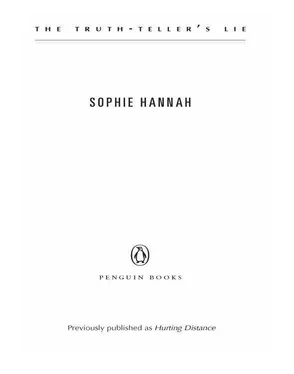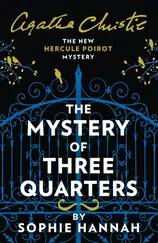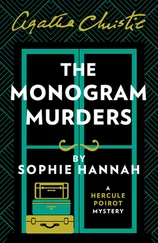He looked relieved when she opened the door of interview room one. Relieved, then embarrassed. Simon had the most expressive eyes of anyone Charlie knew. Without them, he might have had the face of a thug. His nose was large and uneven, and he had a wide, prominent lower jaw that gave him a determined look, like a man intent on winning every fight. Or afraid he might lose and trying to hide it. Charlie gave herself a mental shake. Don’t go all soft about him, he’s a shit. When are you going to realise that it takes effort and planning to be as irritating as Simon Waterhouse is? But Charlie didn’t really believe that. If only she could.
‘Sorry. Got held up,’ she said.
Simon nodded. Opposite him sat a slim, pale, sharp-eyed woman wearing a long black denim skirt, brown suede clogs and a green V-necked jumper that looked like cashmere. Her hair was wavy, shiny reddish brown—a colour that made Charlie think of the conkers she used to fight Olivia for as a child—and she wore it in a shoulder-length bob. At her feet was a green-and-blue Lulu Guinness handbag, which Charlie guessed must have set her back a few hundred quid.
The woman pursed her lips as she listened to Charlie’s apology, and folded her arms more tightly. Irritation or anxiety? It was hard to tell.
‘This is Detective Sergeant Zailer,’ said Simon.
‘And you’re Naomi Jenkins.’ Again, Charlie smiled apologetically. She’d made a resolution to be more soothing, less abrasive, in interviews. Had Simon noticed? ‘Let me have a look at what we’ve got so far,’ she said, picking up the sheet of A4 paper that was covered with Simon’s tiny, neat handwriting. She’d once teased him about it, asking if his mother had forced him to invent a fictional country when he was a kid and fill leather-bound notebooks with tales of his made-up land, like the Brontë sisters. The joke hadn’t gone down well. Simon was touchy about his television-free childhood, his parents’ insistence on mind-improving activities.
Once she’d skim-read what he’d written, Charlie turned her attention to the other set of notes on the table. These had been taken by PC Grace Squires, who had interviewed Naomi Jenkins briefly before passing her on to CID. She’d insisted on speaking to a detective, the notes said. ‘I’ll summarise what I take the situation to be,’ said Charlie. ‘You’re here to report a man missing. Robert Haworth. He’s been your lover for the past year?’
Naomi Jenkins nodded. ‘We met on the twenty-fourth of March 2005. Thursday the twenty-fourth of March.’ Her voice was low-pitched, gravelly.
‘Okay.’ Charlie tried to sound firm rather than abrupt. Too much information could be as obstructive as too little, particularly in a straightforward case. It would have been easy to leap to the conclusion that there was no case here at all: plenty of married men left their lovers without adequate explanation. Charlie reminded herself that she had to give it a chance. She couldn’t afford to close her mind against a woman who said she needed help; she’d done that before, and still felt terrible about it, still thought every day about the chilling violence she might have prevented if only she hadn’t leaped to the easiest conclusion.
Today she would listen properly. Naomi Jenkins looked serious and intelligent. She was certainly alert. Charlie had the impression that she’d have answered the questions before they’d been asked if she could.
‘Robert is forty, a lorry driver. He’s married to Juliet Haworth. She doesn’t work. They have no children. You and Robert have been in the habit of meeting every Thursday at the Rawndesley East Services Traveltel, between four o’clock and seven o’clock.’ Charlie looked up. ‘Every Thursday for a year?’
‘We haven’t missed one since we started.’ Naomi sat forward and tucked her hair behind her ear. ‘And we’re always in room eleven. It’s a regular booking. Robert always pays.’
Charlie cringed. She could have been imagining it, but it seemed to her that Naomi Jenkins was imitating her—Charlie’s—way of speaking: summarising the facts briskly and efficiently. Trying too hard.
‘What do you do if room eleven’s not available?’ asked Simon.
‘It always is. They know to expect us now, so they keep it free. They’re never very busy.’
‘So last Thursday you set off to meet Mr Haworth as usual, except he didn’t arrive. And he hasn’t been in touch to explain why. His mobile phone’s been switched off and he hasn’t replied to your messages, ’ Charlie summarised. ‘Correct?’
Naomi nodded.
‘That was as far as we got,’ said Simon. Charlie skimmed the rest of his notes. Something caught her eye, struck her as unusual. ‘You’re a sundial-maker?’
‘Yes,’ said Naomi. ‘Why is that important?’
‘It isn’t. It’s an unusual job, that’s all. You make sundials for people?’
‘Yes.’ She looked slightly impatient.
‘For . . . companies, or . . . ?’
‘The odd company, but usually private individuals with big gardens. A few schools, the odd Oxbridge college.’
Charlie nodded, thinking that it would be nice to have a sundial for her tiny front yard. Her house had no garden, thank God. Charlie hated the thought of having to mow or prune anything—what a waste of time. She wondered if Naomi did a petite range, like Marks & Spencer.
‘Have you phoned Mr Haworth’s home number?’
‘My friend Yvon—she’s also my lodger—she phoned last night. His wife, Juliet, answered. She said Robert was in Kent, but his lorry’s parked outside his house.’
‘You’ve been there?’ Charlie asked, at exactly the same time as Simon was saying, ‘What kind of lorry is it?’ The difference between men and women, thought Charlie.
‘A big red one. I don’t know anything about lorries,’ said Naomi, ‘but Robert calls it a forty-four-tonner. You’ll see it when you go to the house.’
Charlie ignored this last comment, avoided catching Simon’s eye. ‘You went to Robert’s home?’ she prompted.
‘Yes. Earlier this afternoon. I came straight here from there—’ Her words cut off suddenly, and she looked down at her lap.
‘Why?’ asked Charlie.
Naomi Jenkins took a few seconds to compose herself. When she looked up, there was a defiant glint in her eyes. ‘After I’d been to the house, I knew something was seriously wrong.’
‘Wrong in what sense?’ asked Simon.
‘Juliet has done something to Robert. I don’t know what.’ Her face paled slightly. ‘She’s arranged it so that he can’t contact me. If for some reason he couldn’t get to the Traveltel last Thursday, he’d have rung me straight away. Unless he physically couldn’t.’ She flexed the fingers of both hands. Charlie had the sense that she was putting a lot of effort into appearing calm and in control. ‘He isn’t trying to give me the brush-off.’ Naomi directed this comment to Simon, as if she expected him to contradict her. ‘Robert and I have never been happier. Ever since we first met we’ve been inseparable.’
Charlie frowned. ‘You’re separable and separate six days out of every seven, aren’t you?’
‘You know what I mean,’ Naomi snapped. ‘Look, Robert can barely last from one Thursday to the next. I’m the same. We’re desperate to see each other.’
‘What happened when you went to Mr Haworth’s house?’ asked Simon, fiddling with his pen. Charlie knew he hated anything like this, anything emotionally messy. Though he’d never use that phrase.
‘I opened the gate and went into the garden. I walked round the side of the house to the front—the front is at the back, if you’re coming from the street. I was planning to be quite direct, just ring the bell and ask Juliet straight out: “Where’s Robert?”’
Читать дальше












